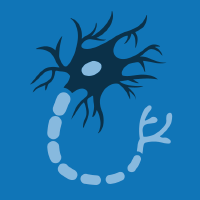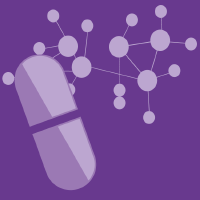Topic Menu
► Topic MenuTopic Editors

2. Associate Laboratory i4HB, Institute for Health and Bioeconomy, Faculty of Pharmacy, University of Porto, 4050-313 Porto, Portugal
3. UCIBIO, Applied Molecular Biosciences Unit, Laboratory of Toxicology, Department of Biological Sciences, Faculty of Pharmacy, University of Porto, 4050‐313 Porto, Portugal

Pharmacology and Toxicology of Amphetamine Type Stimulants
Topic Information
Dear Colleagues,
Amphetamine type stimulants are worldwide known drugs abuse. According to the World Drug Report 2021 of the United Nations, in 2019, there were an estimated 27 million past-year users of amphetamines, including amphetamine (AMPH) and methamphetamine (METH), corresponding to 0.5 per cent of the global population aged 15–64. Also, nearly 20 million people globally are estimated to have used “ecstasy” (3,4-Methylenedioxymethamphetamine or MDMA) in the past year, corresponding to 0.4 per cent of the global population aged 15–64. These drugs target the brain to stimulate the release of monoamine neurotransmitters, which promote the central effects quested by drug users. However, these drugs have been associated to neurotoxicity, cardiovascular toxicity, as well as hepatic and renal toxicity, either acutely or chronically. Notwithstanding, amphetamines have been and are still used therapeutically, and nowadays new drug repurposing is being attempted. D-amphetamine (AMPH) and D,L-threo-Methylphenidate (MPH) psychostimulants are first-line pharmacotherapies for attention-deficit/hyperactivity disorder (ADHD). Also, MDMA assisted psychotherapy is being studied for the treatment of post-traumatic stress disorder (PTSD). Herein all aspects of the pharmacology and toxicology of amphetamine type stimulants are considered. This Topic aims to bring together the latest findings in the field of amphetamine type stimulants, from in vitro to pre-clinical studies or even clinical studies to identify novel mechanisms underlying their (neuro)pharmacology and toxicology, but also new targets for new clinical uses.
Prof. Dr. João Paulo Capela
Prof. Dr. Vera Marisa Costa
Topic Editors
Keywords
- drugs of abuse
- amphetamine type stimulants (ATS)
- methamphetamine (METH)
- 3,4-Methylenedioxymethamphetamine (MDMA or “Ecstasy”)
- methylphenidate (MPH)
- attention-deficit/hyperactivity disorder (ADHD)
Participating Journals
| Journal Name | Impact Factor | CiteScore | Launched Year | First Decision (median) | APC |
|---|---|---|---|---|---|

Future Pharmacology
|
- | - | 2021 | 25 Days | CHF 1000 |

NeuroSci
|
1.6 | - | 2020 | 22.8 Days | CHF 1000 |

Pharmaceuticals
|
4.3 | 6.1 | 2004 | 12.8 Days | CHF 2900 |

Pharmaceutics
|
4.9 | 7.9 | 2009 | 14.9 Days | CHF 2900 |

Toxics
|
3.9 | 4.5 | 2013 | 15.6 Days | CHF 2600 |

MDPI Topics is cooperating with Preprints.org and has built a direct connection between MDPI journals and Preprints.org. Authors are encouraged to enjoy the benefits by posting a preprint at Preprints.org prior to publication:
- Immediately share your ideas ahead of publication and establish your research priority;
- Protect your idea from being stolen with this time-stamped preprint article;
- Enhance the exposure and impact of your research;
- Receive feedback from your peers in advance;
- Have it indexed in Web of Science (Preprint Citation Index), Google Scholar, Crossref, SHARE, PrePubMed, Scilit and Europe PMC.

